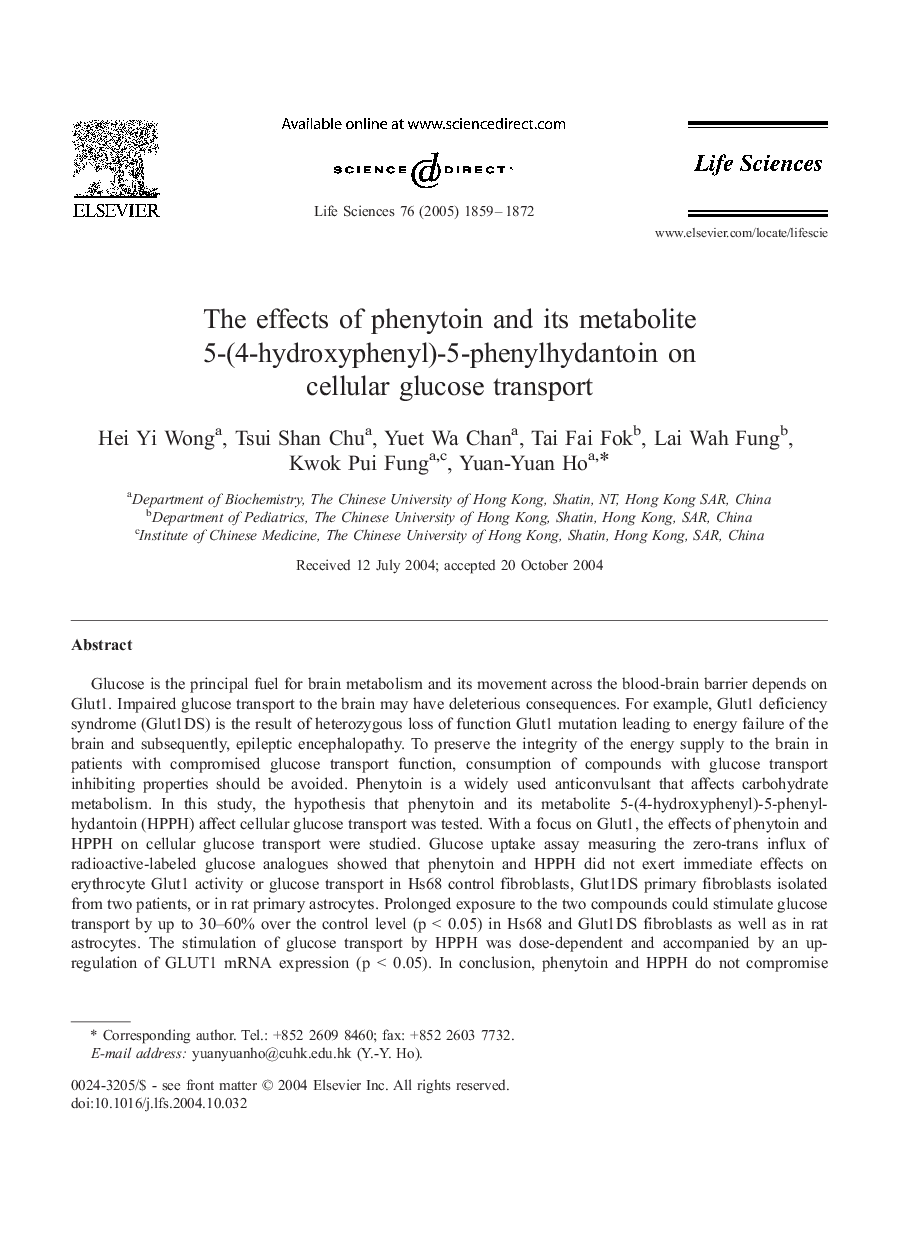| Article ID | Journal | Published Year | Pages | File Type |
|---|---|---|---|---|
| 9012951 | Life Sciences | 2005 | 14 Pages |
Abstract
Glucose is the principal fuel for brain metabolism and its movement across the blood-brain barrier depends on Glut1. Impaired glucose transport to the brain may have deleterious consequences. For example, Glut1 deficiency syndrome (Glut1DS) is the result of heterozygous loss of function Glut1 mutation leading to energy failure of the brain and subsequently, epileptic encephalopathy. To preserve the integrity of the energy supply to the brain in patients with compromised glucose transport function, consumption of compounds with glucose transport inhibiting properties should be avoided. Phenytoin is a widely used anticonvulsant that affects carbohydrate metabolism. In this study, the hypothesis that phenytoin and its metabolite 5-(4-hydroxyphenyl)-5-phenylhydantoin (HPPH) affect cellular glucose transport was tested. With a focus on Glut1, the effects of phenytoin and HPPH on cellular glucose transport were studied. Glucose uptake assay measuring the zero-trans influx of radioactive-labeled glucose analogues showed that phenytoin and HPPH did not exert immediate effects on erythrocyte Glut1 activity or glucose transport in Hs68 control fibroblasts, Glut1DS primary fibroblasts isolated from two patients, or in rat primary astrocytes. Prolonged exposure to the two compounds could stimulate glucose transport by up to 30-60% over the control level (p < 0.05) in Hs68 and Glut1DS fibroblasts as well as in rat astrocytes. The stimulation of glucose transport by HPPH was dose-dependent and accompanied by an up-regulation of GLUT1 mRNA expression (p < 0.05). In conclusion, phenytoin and HPPH do not compromise cellular glucose transport. Prolonged exposure to these compounds can modify carbohydrate homeostasis by up-regulating glucose transport in both normal and Glut1DS conditions in vitro.
Related Topics
Health Sciences
Medicine and Dentistry
Cardiology and Cardiovascular Medicine
Authors
Hei Yi Wong, Tsui Shan Chu, Yuet Wa Chan, Tai Fai Fok, Lai Wah Fung, Kwok Pui Fung, Yuan-Yuan Ho,
